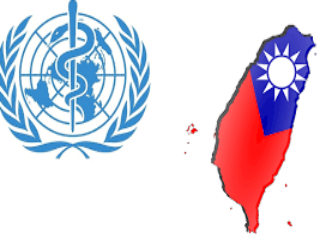Taiwan was not invited to attend the 70th World Health Assembly as an observer in 2017

The WHO needs Taiwan’s participation to establish a sound global health system. Its core objective of uplifting the standard of human health can be achieved through universal health coverage. Taiwan was the first country in Asia to implement a national health insurance program, which boasts a coverage rate of 99.9 percent.
by
Harry Tseng*
For many years, however, it has participated in the WHA and WHO technical meetings, mechanisms, and activities; steadily contributed to enhancing regional and global disease prevention networks; and dedicated its utmost to assisting other countries in overcoming healthcare challenges in order to jointly realise the WHO’s vision that health is a fundamental human right. Therefore, there is widespread support that Taiwan should be invited to attend the WHA.
This year marks the 15th anniversary of the SARS outbreak. Fifteen years after losing many lives to SARS, Taiwan is back on its feet and has developed an ever-stronger disease prevention system. Virus infection knows no borders. Only when every member of the international community is included in this collective fight against diseases can the negative effects of the next potential pandemic outbreak be minimised.
With an interest in making professional health contributions and protecting the right to health, Taiwan seeks participation in the 71st WHA this year in a professional and pragmatic way, in order to become a part of global efforts to realise the WHO’s vision for a seamless global disease prevention network, as well as UN Sustainable Development Goal 3 by 2030, i.e., to ensure healthy lives and promote wellbeing for all at all ages.
Located at a key position in East Asia, Taiwan shares environmental similarities for communicable disease outbreaks with neighboring countries and is frequently visited by international travelers. This makes Taiwan vulnerable to cross-border transmission and cross-transmission of communicable disease pathogens, which could lead to their genetic recombination or mutation, and give rise to new infectious agents.
However, because Taiwan is unable to attend the WHA and is excluded from full participation in related WHO technical meetings, mechanisms, and activities, it is only after much delay—compared to WHO members—that Taiwan can acquire disease and medical information, which is mostly incomplete. This creates serious gaps in the global health security system and threatens people’s right to health.
Furthermore, countries across the globe use food products which are made of various materials coming from all parts of the world. According to a WHO report in 2015, over two million deaths occur each year due to contaminated food or drinking water. Given that Taiwan is the world’s 18th-largest exporter and importer, its exclusion from the international health system poses a threat to global food safety.
The WHO needs Taiwan’s participation to establish a sound global health system. Its core objective of uplifting the standard of human health can be achieved through universal health coverage. Taiwan was the first country in Asia to implement a national health insurance program, which boasts a coverage rate of 99.9 percent. Medical expenditures in Taiwan account for mere 6.3 percent of GDP. In this regard, Taiwan is willing and in a position to share its experience with the WHO and other nations.
In recent years, Taiwan has successfully transformed its role on the international stage from aid recipient to assistance provider. It has established a comprehensive disease prevention system and organised numerous training workshops aimed at building capacity to prevent Ebola, MERS, dengue fever, and Zika in the Asia-Pacific and Southeast Asia, thereby facilitating collective efforts to strengthen global health security.
Meanwhile, Taiwan needs the WHO to protect the health of its own people as well as those in the region and the entire world. Through its participation in the WHA and the WHO, it could share its experience with other countries, make timely reporting and acquire information on diseases, and play a constructive role in global health protection. This would create a win-win scenario for Taiwan, the WHO, and the world community.
*Ambassador Harry Tseng is Representative of the Republic of China (Taiwan) to the EU and Belgium




 By: N. Peter Kramer
By: N. Peter Kramer
